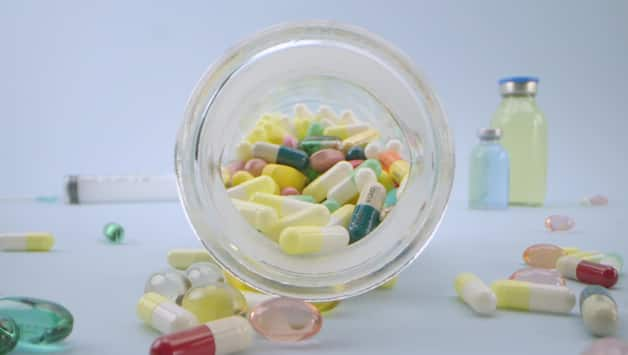Stiftung Warentest has tested dietary supplements for men and found that, in the worst case, they promote prostate cancer. We have summarized the most important information for you here.
Vitamins, nutrients, health – that’s what many think of when it comes to dietary supplements. But sometimes the exact opposite is the case:
“At best superfluous, at worst risky”: This is the verdict of the Stiftung Warentest on dietary supplements aimed at men ( Issue 2/2023 ).
The preparations contain, for example, vitamin D, selenium and zinc – substances that play a role in testosterone levels and sperm formation. But in almost all of the 17 tested preparations, at least some vitamins and minerals are overdosed, as the product testers find.
Particularly risky: “A lot helps a lot” does not apply to dietary supplements. On the contrary: too much vitamin D can damage the kidneys, and too much vitamin E increases the risk of prostate cancer.
The “watering can” principle also makes no sense when it comes to food supplements, as the product testers say.
Of the 17 dietary supplements tested, including three organic products, the experts rated one as “superfluous” – it scored the best! Nine others received the conclusion “superfluous, overdosed and partly insufficiently marked”. According to Stiftung Warentest, the seven tail lights are “superfluous, with serious defects”. You should definitely stay away from these products. Among the losers are well-known products such as Centrum Für Him, Doppelherz System Für Him or the organic remedy Nature love Rote Kraft for active men.
The recommendation: It is better to specifically supplement individual nutrients – if there is a medically determined deficiency. If you eat a balanced diet, the body is usually well supplied with nutrients anyway.
And: If you want to strengthen your sperm, you don’t have to swallow pills that can cost up to 2.67 euros per day. It is better to focus on a healthy lifestyle. And to skip going to the sauna from time to time so as not to slow down the heat-sensitive testicles too much in their work.
You can read the detailed test for a fee at Stiftung Warentest.
The original of this article “Nutritional supplements for men carry a risk of cancer” comes from chip.de.















